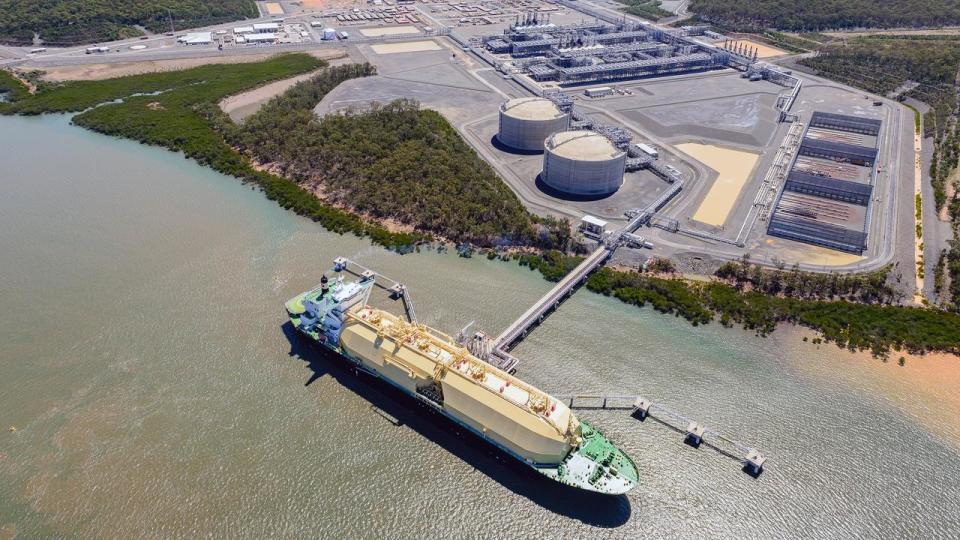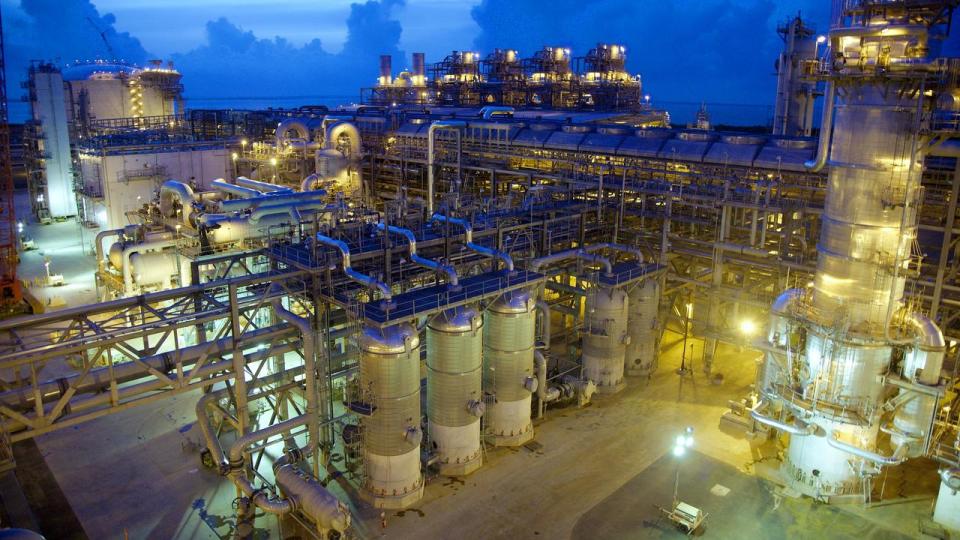'Unsafe future': Australia commits to decades more gas
More gas extraction has been given the green light under a plan promising to prolong use of the fossil fuel while still realising Australia's net zero ambitions.
But critics have panned the future gas strategy, which locks in supplies for consumers through to 2050 and beyond, arguing the federal government is enabling the fossil fuel industry to wreck the environment.
Resources Minister Madeleine King said access to affordable gas was key to achieving Australia's commitment to net zero emissions by 2050, as she released the plan on Thursday.
Gas is needed to provide firming for intermittent renewable power generation and in hard-to-abate sectors such as manufacturing until alternative technologies become commercially viable, she claimed.

Ms King failed to convince Greens leader Adam Bandt, who branded Labor "utter climate frauds".
The Lock the Gate alliance of farmers and conservationists said the gas strategy would blow Australia's climate targets and damage land, water and communities, while the Australian Marine Conservation Society warned it would put the Great Barrier Reef at risk.
Djingili Elder Samuel Sandy, chair of the Nurrdalinji Aboriginal Corporation, said solar and not gas was the answer to drilling into land in the Northern Territory.
"It's already getting hotter here, making it harder to live on country. Digging and burning more gas will make this worse," he said.
"If our country is fracked, where are we going to take our grandchildren out on country to teach them, the way my grandfather taught me?"
Lucy Manne, CEO of climate group 350 Australia, said Ms King was "doing the dirty work of the gas lobby" by spruiking massive new gas fields.
"More gas means more pollution and that means worse fires and floods. We can't have a safe future and massive new gas projects," she said.
Australian Energy Producers chief executive Samantha McCulloch welcomed the government's plan but said an urgent unlocking of new gas supply was needed to avoid projected shortfalls and drive up demand for coal power.
"Securing that will involve really looking at the projects that are currently tied up with regulatory uncertainty or approval delays, ensuring those projects can move forward in a timely manner," she said.
Ms King said the sector would need continued exploration, investment and development to supply Australia's gas needs, and those of its Asian neighbours.

The plan will unlock acreage for contentious carbon capture and storage to sequester carbon deep under the seabed and help regional partners store carbon on Australian territory.
Ms King urged producers and state governments to work to avoid shortages and make gas affordable, including enabling the Narrabri project that could supply half the gas used in NSW homes and businesses.
"Gas plays a crucial role in supporting our economy, with the sector employing 20,000 people across the country, including remote and regional communities," she said.
Proceeds from gas exports make up 14 per cent of Australia's export income and contributed an estimated $16 billion to state and federal budgets last financial year.
But critics say loopholes in the petroleum resource rent tax mean the country still reaps far less than other fossil fuel exporting nations, with the Australia Institute estimating up to $40 billion in annual windfall profits are left untouched.
PRINCIPLES FOR FUTURE GAS:
* Australia will produce and use gas while reaching net zero emissions by 2050
* Gas must remain affordable for Australian users throughout the transition to net zero
* New sources of gas supply are needed to meet demand during the economy-wide changes
* Reliable gas supply will gradually and inevitably support a shift towards "higher-value and non-substitutable" gas uses
* Gas and electricity markets must adapt to remain fit for purpose throughout the energy transformation
* Australia is, and will remain, a reliable trading partner for energy, including LNG and low-emission gases.

 Yahoo Finance
Yahoo Finance 